Different mortgage types in the UK: Pros and Cons

In the UK, there are different mortgage types to choose when purchasing a property. Each mortgage has its pros and cons and depending on the reason you are buying your property, you may lean towards one more than the other. To help you decipher what type of mortgage is best for you, here are the different mortgage types in the UK.
Interest-only vs Repayment mortgage
Interest-only mortgages and repayment mortgages differ depending on how the loan is paid back. Depending on your reason for purchasing the property, you may lean towards one over the other.
1. Interest-only Mortgage
An interest-only mortgage is where the monthly payment you make to the bank is solely based on interest. At the end of your mortgage term, the amount left on the mortgage is the amount you initially borrowed from the bank or lender to purchase your property. This type of mortgage is typically used for investment properties. For example, buy-to-let properties or an office for your business for example. It is less so used for residential properties that you would be living in. This is because not having the lump sum amount of money at the end of the mortgage term could be troublesome and even lead to the lender repossessing the home.
2. Repayment Mortgage
Repayment mortgages are where your monthly payments include both the amount you borrowed and interest. You are simultaneously paying off both at the same time to reduce the chance of there being a higher lump sum at the end of your mortgage. This type of mortgage is more popular for a property you will be living in and therefore something first-time buyers would likely opt for.
Fixed-rate vs Variable rate mortgages
Fixed-rate vs Standard variable-rate mortgages speak to the type of interest applied to the mortgage.
3. Fixed-rate mortgage

A fixed-rate mortgage is where the interest rate you pay on your mortgage is at a fixed amount and does not change even if the Bank of England’s base rate rises or changes in the market. The fixed mortgage rate is set at this amount from when you accept that mortgage type for a set amount of time. Leaving before that set amount of time will mean you’ll have to pay for exit fees.
Since the fixed-rate mortgage is the same monthly amount, it means that it’s easier for you to budget. Fixed-rate mortgages are particularly appealing to first-time buyers looking to budget in the initial years of purchasing their home. The fixed-rate period typically ranges from the first two to five years of your mortgage.
A downside to fixed-rate mortgages is that although you’ll be protected against a rise in Bank of England rates, you won’t benefit when it falls.
4. Variable rate mortgage
A standard variable rate mortgage is based on an interest rate that the lender determines. The Bank of England base rate usually influences the lender’s set choice for the interest rate. On a variable-rate mortgage, the lender can switch month to month the interest rate. This makes it more difficult for you to budget for the future but means you do benefit when the interest rate decreases, you can also overpay or switch from this mortgage without there being penalties. There’s more flexibility with variable-rate mortgages.
If you initially choose a fixed-rate mortgage, when it ends, you’ll usually be transferred to a standard variable-rate mortgage.
5. Tracker mortgage

A tracker mortgage has an equivalent interest rate to that of the Bank of England base rate alongside a few more percentage points that are set by your lender. This means your interest rate will fall and increase alongside the changes in the Bank of England base rate. Those who select this type of mortgage are typically those who are confident that the Bank of England base rate is set to fall so they can benefit from low interest rates.
Tracker mortgages tend to come with introductory deals for a set number of years. When the deal ends, you’ll likely be transferred to a standard variable rate mortgage.
6. Discount Mortgage
A discount mortgage means you pay a lower amount of the standard variable rate that your lender offers. The discount offered is at a fixed percentage. Like a track mortgage, a discount mortgage is usually offered for an introductory term. Therefore first-time buyers are more likely to be the type to opt for a discount mortgage if they are looking for a more affordable entry point on their initial period. Unfortunately, this means this type of mortgage isn’t available once this introductory term ends.
Want to learn more about different mortgage types? The Homebuyers Club has a classroom course for members that goes deep into all the basics for first-time buyers. You can sign up here.
Get in touch
Feel free to get in touch with general enquiries using the contact details below alternatively fill out the form and one of team members will be in touch shortly.
